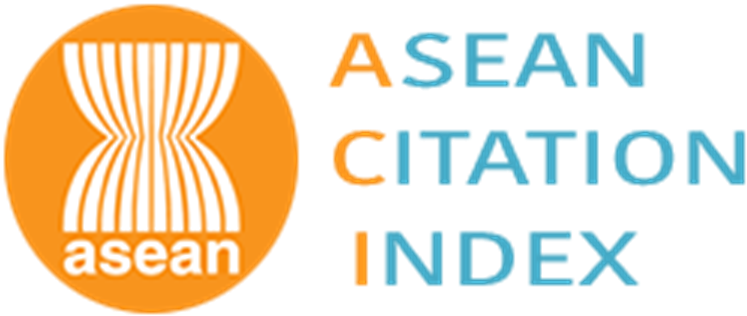การออกแบบและพัฒนาออนโทโลยีการท่องเที่ยวเชิงทดแทนในสถานการณ์โควิด-19
The Design and Development of Alternative Tourism Ontology in the COVID-19 Situation
Abstract
ปัจจุบัน ประเทศต่างๆ ทั่วโลกได้เผชิญกับโรคติดเชื้อไวรัสโคโรนา 2019 หรือ โควิด-19 ทำให้จำเป็นต้องปิดประเทศเพื่อป้องกันการติดเชื้อ และส่งผลให้นักท่องเที่ยวทั้งชาวไทยและชาวต่างชาติไม่สามารถเดินทางข้ามประเทศไทย อีกทั้งนักท่องเที่ยวในประเทศก็ไม่สามารถเดินทางไปยังท่องเที่ยวในภูมิภาคต่างๆ ได้ งานวิจัยนี้มีวัตถุประสงค์เพื่อออกแบบและพัฒนาออนโทโลยีการท่องเที่ยวเชิงทดแทนในสถานการณ์โควิด-19 เพื่อค้นหาสถานที่ท่องเที่ยวในประเทศไทยที่คล้ายกับสถานที่ท่องเที่ยวต่างประเทศ และสถานที่ท่องเที่ยวประเทศไทยในภูมิภาคหนึ่งที่คล้ายกับอีกภูมิภาคหนึ่ง โดยในการสืบค้นข้อมูลได้ใช้รูปแบบคำค้นที่เก็บจากนักท่องเที่ยวจำนวน 400 คน และประเมินประสิทธิภาพการค้นคืนของออนโทโลยี โดยการเปรียบเทียบเทคนิคการวัดค่าความคล้าย 6 วิธี ได้แก่ 1) วิธีการหาระยะทางแบบยุคลิดแบบถ่วงน้ำหนัก 2 ระดับ (2L-ED) 2) วิธีการหาระยะทางแบบยุคลิดแบบถ่วงน้ำหนัก 5 ระดับ (5L-ED) 3) วิธีการวัดความคล้ายกันแบบแจ็กการ์ดแบบถ่วงน้ำหนัก 2 ระดับ (2L-JS) วิธีการวัดความคล้ายกันแบบแจ็กการ์ดแบบดัดแปลงแบบถ่วงน้ำหนัก 5 ระดับ (5L-JS) 5) วิธีการวัดความคล้ายกันแบบโคไซน์แบบถ่วงน้ำหนัก 2 ระดับ (2L-CS) และ 6) วิธีการวัดความคล้ายกันแบบโคไซน์แบบดัดแปลงแบบถ่วงน้ำหนัก 5 ระดับ (5L-CS) ซึ่งวิธีที่เหมาะสมที่สุดที่ใช้ในการสืบค้นสถานที่ท่องเที่ยวในประเทศไทยที่ทดแทนสถานที่ท่องเที่ยวต่างประเทศ คือ วิธีการวัดความคล้ายกันแบบแจ็กการ์ด (2L-JS) และวิธีการวัดความคล้ายกันแบบโคไซน์ (2L-CS) โดยออนโทโลยีการท่องเที่ยวที่พัฒนาขึ้นมามีค่าเอฟเมเชร์ที่ร้อยละ 97.43
Currently, countries around the world are facing Coronavirus disease 2019 (COVID-19), making it necessary to shut down the countries to prevent infection. As a result, both Thai and foreign tourists cannot travel across Thailand. In addition, domestic tourists are unable to travel to different regions. This research aims to design and develop an alternative tourism ontology in the COVID-19 scenario. This ontology is applied to search for tourist attractions in Thailand that are comparable to international destinations, or domestic tourist attractions in a region that look like those of another region. To search for the information, this research uses the keyword format collected from 400 tourists. The ontological retrieval efficiency was assessed by comparing six similarity measurement techniques which are 1) 2-Level Euclidean Distance (2L-ED), 2) 5- Level Euclidean Distance (5L-ED), 3) 2-Level Jaccard Similarity (2L-JS), 4) 5-Level Jaccard Similarity (5L-JS), 5) 2-Level Cosine Similarity (2L-CS), and 6) 5-Level Cosine Similarity (5L-CS). The most suitable methods used to search for tourist attractions in Thailand that might replace foreign tourist attractions are the 2-Level Jaccard Similarity (2L-JS) and the 2-Level Cosine Similarity (2L-CS). The developed tourism ontology is achieved with an F-measure score of 97.43 per cent.
Keywords
[1] B. Tangwattana, Sustainable Tourism Development, Bangkok: Press and Design, 2005 (in Thai).
[2] Tourism Authority of Thailand. (2021, July). Project we travel together. [Online] (in Thai). Available: https://wetraveltogether.com/information.
[3] T. Berners-Lee, J. Hendler, and O. Lassila, The semantic web. Scientific American, 2001.
[4] S. Ghosh, S. Das, and K. Chatterjee, “Human-centric faceted approach for ontology construction,” Knowledge Organization, vol. 47, no. 1, pp. 31–44, 2020.
[5] V. Subramaniyaswamy, G. Manogaran, R. Logesh, V. Vijayakumar, N. Chilamkurti, D. Malathi, and N. Senthilselvan, “An ontologydriven personalized food recommendation in IoT-based healthcare system,” The Journal of Supercomputing, vol. 75, no. 6, pp. 3184–3216, 2019.
[6] C. Lee, T. C, Hsia, H. C. Hsu, and J. Y. Lin, “Ontology-based tourism recommendation system,” presented at the 4th International Conference on Industrial Engineering and Application, Nagoya, Japan, 2017.
[7] I. Chuentam, C. Thongkham, and J. Phuboonob, “Ontology development for tourism information advisory system in the northeast of Thailand,” Journal of Science and Technology Mahasarakham University, vol. 34, no. 1, pp. 32–44, 2014 (in Thai).
[8] W. Kanawarong, “Development of cultural tourism ontology,” M.S. thesis in Informatics, Department of Information Technology, School of Social Technology, Suranaree University of Technology Nakhon Ratchasima, 2014 (in Thai).
[9] T. Pinthongphan, “The Application of Technology Ontology for Information Retrieval Ecotourism for the Lower Southern Region of Thailand,” M.S. thesis Special, Program Information Technology Management, Faculty of Engineering, Prince of Songkla University, 2014 (in Thai).
[10] N. Phanawong and C. Sanehnamahut, “Searching system for tourist attractions in Thailand using ontology and name matching principles, ” Journal of Information and Technology, vol. 2, no. 1, pp. 287–294, 2010 (in Thai).
[11] K. Hattaya and A. Jitimon, “Rural tourism ontology,” M.I.S thesis, Department of Information Technology, School of Social Technology, Suranaree University of Technology, 2011 (in Thai).
[12] H. MiliPetko, V. Yasmine, C. Laszlo, S. Nidhal, D. Marjolaine, B. Anis, B. Louis, M. François, B. Sabeh, C. Essebsi, A. Leshob, “E-tourism portal: A case study in Ontology-driven development,” presented at the international Conference on E-Technologies, Berlin, Heidelberg, 2011.
[13] S. Ou, V. Pekar, C. Orasan, C. Spurk, and M. Negri, (2021, March). Development and Alignment of a Domain-Specific Ontology for Question Answering. [Online]. Available: http://qallme.fbk.eu/QALL-ME_LREC2008_final_submission_ou.pdf
[14] S. Ou, V. Pekar, C. Orasan, C. Spurk, and M. Negri, “Development and alignment of a domainspecific ontology for question answering,” presented at the 6th International Language Resources and Evaluation, Marrakech, Morocco, 2008.
[15] K. Prantner, Y. Ding, M. Luger, Z. Yan, C. Herzog. (2021, August). Tourism Ontology and Semantic Management System: State-of-the-arts Analysis. in J. Roth, J. Gutiérrez, A. P. Abraham (Eds.), IAD1S International Conference WWW/Internet 2007. Vila Real, Portugal. [Online] http://195.130.87.21:8080/dspace/bitstream/123456789/655/1/Tourism%20ontology%20and%20semantic%20management%20system%20state-of-the-arts%20analysis.pdf
[16] K. Prantner, K. Siorpaes, D. Bachlechner. (2020, October). OnTour: Semantic web search assistant. [Online] http://etourism.deri.at/documents/OnTour20Presentation.pdf
[17] S. Dickman, Tourism an Introductory Text, 2nd ed. Sydney: Hodder Education, 1996.
[18] N. F. Noy and D. L. McGuinness, “Ontology development 101: A guide to creating your first ontology,” Stanford Knowledge Systems Laboratory Technical Report KSL-0105 and Stanford Medical Informatics Technical Report SMI-2001-0880. Stanford University, 2001.
[19] T. Yamane, Statistics An Introductory Analysis. 2nd ed. New York. Harper and Row, 1967.
DOI: 10.14416/j.kmutnb.2023.10.003
ISSN: 2985-2145





